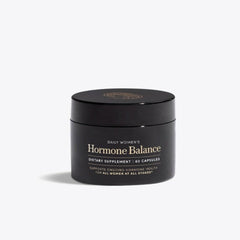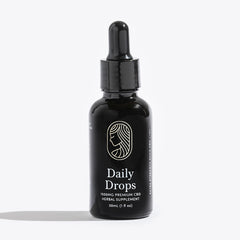 If you are a self-proclaimed health and wellness guru, you have probably heard something about the microbiome – but you may not know what it can do for women’s health specifically. Your microbiome is the community of microorganisms (such as bacteria, fungi, and viruses) that live in and on your body – in your gut, on your skin, in your vagina, in your bladder, and even in your respiratory system! When your microbiome is healthy and in balance, it helps to support many areas of health – but when it is out of balance, we can see associated health challenges. A good analogy for your microbiome is how having quality soil in your garden results in better vegetables and flowers! For this reason, a lot of energy is going into the study of the microbiome and how we can benefit healthy by supporting and supplementing it.
If you are a self-proclaimed health and wellness guru, you have probably heard something about the microbiome – but you may not know what it can do for women’s health specifically. Your microbiome is the community of microorganisms (such as bacteria, fungi, and viruses) that live in and on your body – in your gut, on your skin, in your vagina, in your bladder, and even in your respiratory system! When your microbiome is healthy and in balance, it helps to support many areas of health – but when it is out of balance, we can see associated health challenges. A good analogy for your microbiome is how having quality soil in your garden results in better vegetables and flowers! For this reason, a lot of energy is going into the study of the microbiome and how we can benefit healthy by supporting and supplementing it.
Microbiome Research and Women’s Health
Vaginal health
Probiotics, especially Lactobacillus spp, help to maintain normal vaginal health by maintaining the overall balance of the vaginal ecosystem. This includes supporting the promotion and maintenance of normal vaginal flora and diminishing the presence of undesirable organisms. <1>
Support for menstrual cycle discomfort
Some women experience uncomfortable gastrointestinal symptoms that are associated with their menstrual cycle, and studies are currently assessing whether probiotics may help support women with this common challenge. <2>
Menopausal health
 The decline in estrogen levels associated with menopause and peri-menopause can disrupt the vaginal microbiome, impacting both vaginal health and comfort. Most notably, women experience a loss of Lactobacillus abundance. Supplementing with targeted probiotics can help to restore this balance in menopause. <3>
The decline in estrogen levels associated with menopause and peri-menopause can disrupt the vaginal microbiome, impacting both vaginal health and comfort. Most notably, women experience a loss of Lactobacillus abundance. Supplementing with targeted probiotics can help to restore this balance in menopause. <3>
Support for fertility
Research on the relationship between a health vaginal microbiome and fertility is still relatively new, but research is beginning to support a role for a balanced vaginal flora in fertility <3> and perhaps even in pregnancy.
Bladder health
Probiotics can help to maintain a healthy balance of microorganisms in the bladder as well as the gut and the vagina, and it has been specifically shown that introducing healthy probiotics into the digestive system can also offer health benefits to the bladder. <4>
Skin health
 Probiotics encourage the production of metabolites in the gut that can help to guard against break outs and promote natural defenses against environmental factors <5> that contributing to skin aging.
Probiotics encourage the production of metabolites in the gut that can help to guard against break outs and promote natural defenses against environmental factors <5> that contributing to skin aging.
Health, weight and metabolism
While not specifically associated with significant weight loss, probiotics show promise in supporting normal metabolism, balanced blood sugar, and healthy blood fats. <6>
Where Should I Start?
Diet
 Your diet has a huge impact on your microbiome, so maintaining a low intake of concentrated sugars and a healthy intake of prebiotics and fiber is great way to nourish yourself and your microbiome. Prebiotics come from many plant sources such as whole grains, bananas, onions, asparagus, berries, apples, flax seeds, oats, and tomatoes. You can also find an amazing, organic, prebiotic blend in our Daily Nutri-Greens.
Your diet has a huge impact on your microbiome, so maintaining a low intake of concentrated sugars and a healthy intake of prebiotics and fiber is great way to nourish yourself and your microbiome. Prebiotics come from many plant sources such as whole grains, bananas, onions, asparagus, berries, apples, flax seeds, oats, and tomatoes. You can also find an amazing, organic, prebiotic blend in our Daily Nutri-Greens.
Testing
Curious to know how healthy and balanced personal microbiome is? There’s a test for that! Companies like Zoe let you order a home kit, and then help you understand the results. You can also test your vaginal microbiome through companies like Evvy.
Targeted supplementation
You can supplement your microbiome daily or as needed with our Daily Women’s Microbiome Defense, designed to focus on the needs of women for balanced gut, vaginal, and bladder support.
References:
<1> Borges S, Silva J, Teixeira P. The role of lactobacilli and probiotics in maintaining vaginal health. Arch Gynecol Obstet. 2014;289(3):479-489. doi:10.1007/s00404-013-3064-9
<2> Nabeh OA. New insights on the impact of gut microbiota on premenstrual disorders. Will probiotics solve this mystery? Life Sci. 2023;321:121606. doi:10.1016/j.lfs.2023.121606
<3> Lehtoranta L, Ala-Jaakkola R, Laitila A, Maukonen J. Healthy Vaginal Microbiota and Influence of Probiotics Across the Female Life Span. Front Microbiol. 2022;13:819958. doi:10.3389/fmicb.2022.819958
<4> Akgül T, Karakan T. The role of probiotics in women with recurrent urinary tract infections. Turk J Urol. 2018;44(5):377-383. doi:10.5152/tud.2018.48742
<5> Lolou V, Panayiotidis MI. Functional Role of Probiotics and Prebiotics on Skin Health and Disease. Fermentation. 2019;5(2):41. doi:10.3390/fermentation5020041
<6> Sivamaruthi BS, Kesika P, Suganthy N, Chaiyasut C. A Review on Role of Microbiome in Obesity and Antiobesity Properties of Probiotic Supplements. BioMed Res Int. 2019;2019:e3291367. doi:10.1155/2019/3291367



